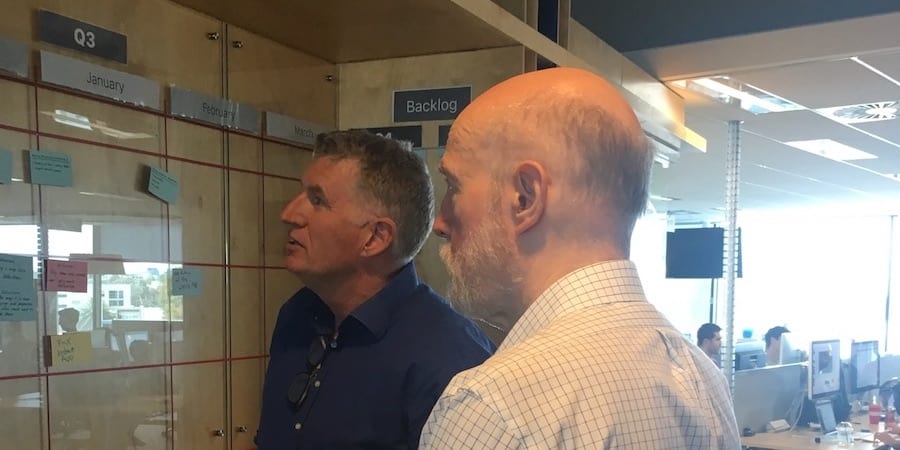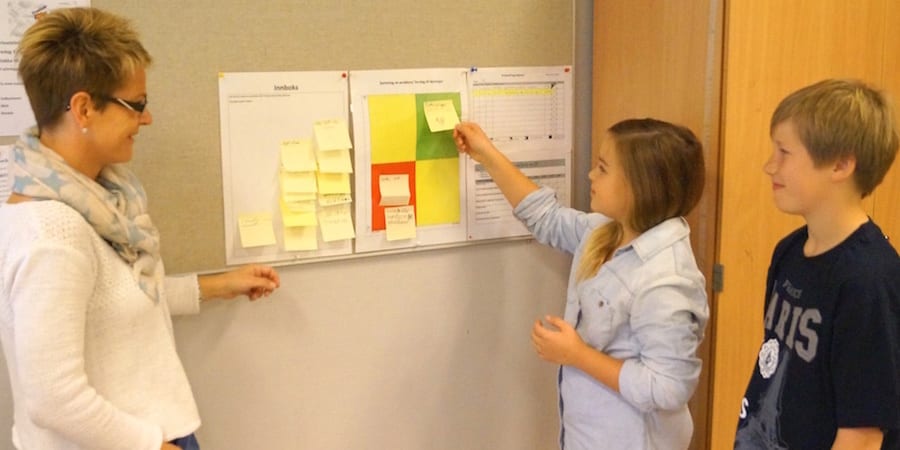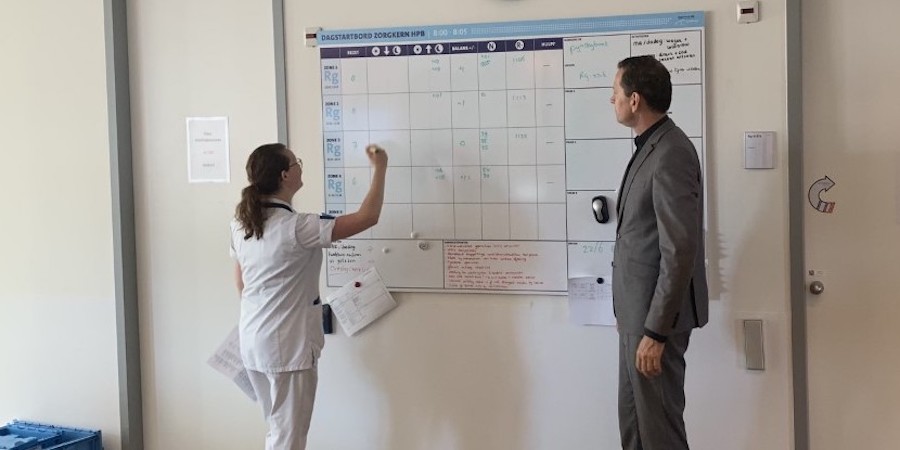
Leveraging tech to improve education
INTERVIEW – In a chat with our editor, Priya Lakhani explains how technology can be used to understand a student’s unique learning pathway and design teaching accordingly.
Interviewee: Priya Lakhani, Founder and CEO, Century Tech
Roberto Priolo: There is a lot of discussion within the lean movement around learning and how the current education system is not equipping students with the skills they need. In your opinion, what are the shortcomings of the education system?
Priya Lakhani: Education systems the world over are designed to deliver a factory-like model of learning. They force students to memorize data (and find a way to regurgitate that data for their exam) and teachers to spend a lot of time on admin. The tasks teachers have to complete on a regular basis – like marking – are meant to keep track of the needs and struggles of each individual student, but actually add no value to the learning experience. Consider that the average classroom here in the UK has 27 students (the number goes up to 50-60 in some African and Asian countries) and you can imagine the workload!
The main tool teachers use to understand how a student is doing and when an intervention is needed is the test. They will then have to mark all these tests, analyze the data, and for each individual student figure out what they are struggling with and why. In the Western world, teachers spend 60% of their time on admin, and I guarantee you there is no teacher who signed up for that. They are meant to inspire students – that’s where their passion lies – instead of drowning in paperwork.
Moreover, education should not only be about memorizing content… it should be about making students confident, giving them a good attitude towards others and towards life, having them understand perseverance. So, how can we provide a wholesome type of education? That all comes down to the different ways in which each of us learn. The problem is that education systems are currently focused on allowing teachers to manage a class rather than truly provide students with the education they need. Our schools are not providing the differentiation in education that truly effective education calls for.
RP: What’s the solution to this problem, in your mind?
PL: The only way I see to empower teachers and take into account each student’s learning pathway is by augmenting teaching with advanced technology. Technology can learn how a student’s brain learns, what elements of a subject a student is struggling with, and so on. It can provide this critical information to teachers very quickly, and that’s what Century Tech is all about.
RP: Tell us about Century Tech and how it came about, please.
PL: While I was on a Government Advisory Board here in the UK, I had a chance to learn about the issues facing our schools. I saw the problems as they are experienced at the front line and realized the education we are providing today is completely inadequate. That’s when I made it my purpose to help teachers make better use of their time and do value-adding work that really helps students and find a way to leave the admin work to machines.
I looked at the technology out there and I didn’t see any innovation in it. Digitization is more than having a software do what humans were doing manually; it is about using technology to advance processes, make better decisions, and be more efficient in one’s job. That’s the idea behind Century Tech.
We designed a system that uses machine learning, artificial intelligence and other tools to learn how you learn and differentiate for you the best way forward in terms of curriculum. The data captured by the system provides all the information teachers need and saves them huge amounts of time, so that instead of paperwork they can focus on what they are truly passionate about – shaping our next doctors, lawyers, innovators, Prime Ministers, and so on.
We are tens of thousands of teachers short in the UK, with 74% of our teachers considering quitting their jobs over the next three years. That’s a national crisis! At Century Tech, we want to make life easier for teachers so that they will stay in their jobs. We also want teaching to be perceived for what it really is: one of the most rewarding jobs there are.
RP: Can you give us a couple of examples of how Artificial Intelligence applies to learning?
PL: Traditional education systems often use tests to assess a student’s understanding of a subject – in other terms, whether or not they are learning. But a test doesn’t tell you anything about a student’s learning behavior. What if you guess in giving your answers? What if you hesitate? Technology can understand very quickly learning behaviors that can take humans months or years to figure out. For example, our technology can create a dynamic pathway for every student, highlighting the elements of a subject he or she has to learn at this moment, and identifying misconceptions.
As I mentioned, differentiation is everything. Imagine two students failing math in a college. One might fail the subject completely and not understand what a common denominator is in a fraction, while another might have just missed a C and simply struggle to factorize equations. As a teacher, how are you going to recognize and address these two very different needs? (Especially when you have another 25+ students to teach.) Artificial Intelligence tells you straight away what a student is finding difficult, and helps to remedy the problem.
RP: How does the use of this technology impact the lives of teachers and student outcomes?
PL: We have done an impact study on our technology, which revealed an average increase of 30% in outcomes across the board for students using our system. We have also seen that it saves around six hours a week per teacher (eight or ten for those teaching certain subjects). That’s nearly a whole working day!
RP: Do you have experience with lean thinking?
PL: As a company, Century Tech has certainly embraced lean ideas. For one, we are very agile in our processes. We also take customer feedback very seriously, listening to the voice of the customer at all times not only to fix problems in our product but to truly innovate.
I am excited to meet the Lean Community in the fall, at the Global Learning Lean Conference in Chester, and discuss how we can further advance education together.
Join Priya at the 1st Global Learning Summit Conference in Chester, UK on October 24-25.

THE INTERVIEWEE

Read more


ONE QUESTION, FIVE ANSWERS – With this month’s question we try to understand what lean idea or principle our interviewees would have liked to learn sooner or better in their journey. So, heads up… You might be in a similar situation.


PROFILE – The leader we profile today has a holistic view of the digital world. He brought Agile to Australia, and after embracing lean thinking he has helped to make REA Group one of the country's best digital brands.


CASE STUDY - A pioneering school in Rogaland, Norway, is proving that some elements of lean thinking can successfully be adapted to the education system to create better conditions for both teaching and learning.


FEATURE – Our editor recently caught up with the director of the largest hospital in the Netherlands and asked him about the lean transformation he’s leading there.

